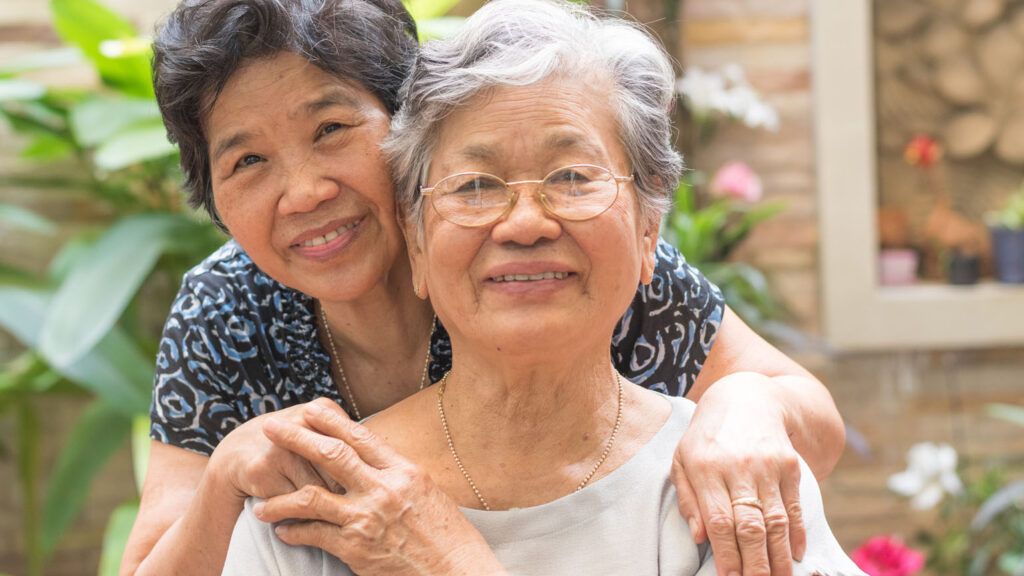Lauri Scharf, LSW, MSHS, is a Care Consultant & Master Trainer at Benjamin Rose Institute on Aging
“I’d do anything in the world for my mom, but I’m starting to think I need some help. I feel like I should be able to handle everything since I’m her primary caregiver, but at the end of the day, I’m usually drained and depleted. My kids have suggested I hire an in-home aide to give Mom a bath and sit with her while I run errands or just take a breather. It’s a nice idea, but Mom and I are both reluctant to have someone else in her house.”
This thought process is not uncommon, even among caregivers who could benefit greatly from in-home support. It’s easy to come up with reasons to be reluctant. A lot of us have been using Covid as an excuse not to let others inside our homes. But what happens when we are all vaccinated, or our loved ones begin to require a greater level of care than family members are equipped to handle by themselves?
If you’ve warmed to the notion of hiring an in-home aide, but your loved one—whether it’s your parent or spouse—remains resistant, keep in mind that processing such a subject takes time and true two-way dialogue. It can help to view the situation in the following ways:
- Put yourself in your loved one’s shoes. How open would you be to allowing another person into your home to care for you? By doing so, would you be admitting that your health is failing? Or would it leave you feeling that you’re getting older, which can be hard to accept? You can understand that your loved one may feel this way, yet it’s important to balance his or her need for independence with your safety worries.
- Most people don’t appreciate being told what to do. Rather than giving your opinion, listen empathetically to what your loved one is telling you. Maybe your loved one seems emotionally or physically overloaded. Would he or she be open to accepting help with certain activities or chores?
- Pose open-ended questions. When you approach topics this way, it shows that you value your loved one’s thoughts and feelings, and it can also give you important information on his or her deep feelings and wishes.
- Don’t underestimate the commitments your older loved ones have made to one another. The promises made during the course of a lifetime can be just as impactful as vows made at a wedding. And these bonds exist not only within marriages, but also within families and friendships.
So if you’re convinced that your situation requires in-home care, but that your loved one would be resistant, how do you bring it up? Rather than using an all or nothing approach, it may help to begin with a simple question: “If you could choose one daily chore to remove from your to-do list, what would you pick?” Perhaps it’s cooking and washing the dishes. Or it could be handling minor household repairs. When you begin the process by addressing your loved one’s concerns, you may also end up addressing your own.
Then listen to your loved one’s feelings about allowing someone else into his or her home. Once you have really heard them, gently offer some practical support and possible solutions:
”I don’t want a stranger in my living space. They’ll steal my valuables.”
- Draw up a list of your loved one’s valuables. Figure out where to keep them protected. It could be a safe or a safety deposit box.
- Get in touch with the home insurance company to review your loved one’s policy and go over the coverage together.
- Speak with someone at the home health care agency you’re considering to review its insurance, liability protection, and procedure for any claim that may be necessary.
- Discuss with your loved one the possibility of installing security cameras.
“I can’t accept support from someone I don’t know.”
- Let the aide and your loved one meet before making the decision for home care, if it’s feasible.
- Introduce an atmosphere of acceptance in how you speak to and interact with the aide yourself. If your loved one sees you are comfortable with the aide, it may create better rapport between them, too.
“Just because I’m older, it doesn’t mean I need assistance.”
- It can be uncomfortable to be on the receiving end of help. It’s natural to want to be the person providing the support.
- Remind your loved one that the home care aide is being paid for doing this job, and that that helps the aide and his or her family. This places your loved one in the position of giving rather than receiving help.
“Outside people will bring Covid.”
- Request a copy of the health safeguards and procedures that all staff at the home health agency must follow and go over it with your loved one.
- Create an in-home safety station and procedures for everyone to follow. Have a thermometer at the door as well as clean disposable masks and hand sanitizer.
- Put several additional hand sanitizers throughout the home, particularly in spots where your loved one and the aide will be interacting.
- Update the health care agency about in-home precautions.
Ultimately, it’s important to keep in mind that fear and uncertainty over your loved one’s health condition can have a profound impact on family relationships. As dynamics change, it’s easy to feel vulnerable as a caregiver. You have a lot on your plate. Remember that communication is key, and that it’s not only okay to accept help, it’s crucial to your well-being!






